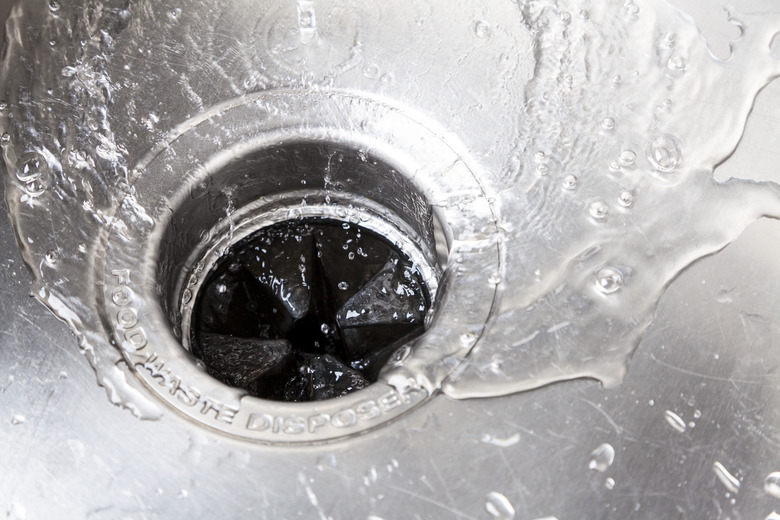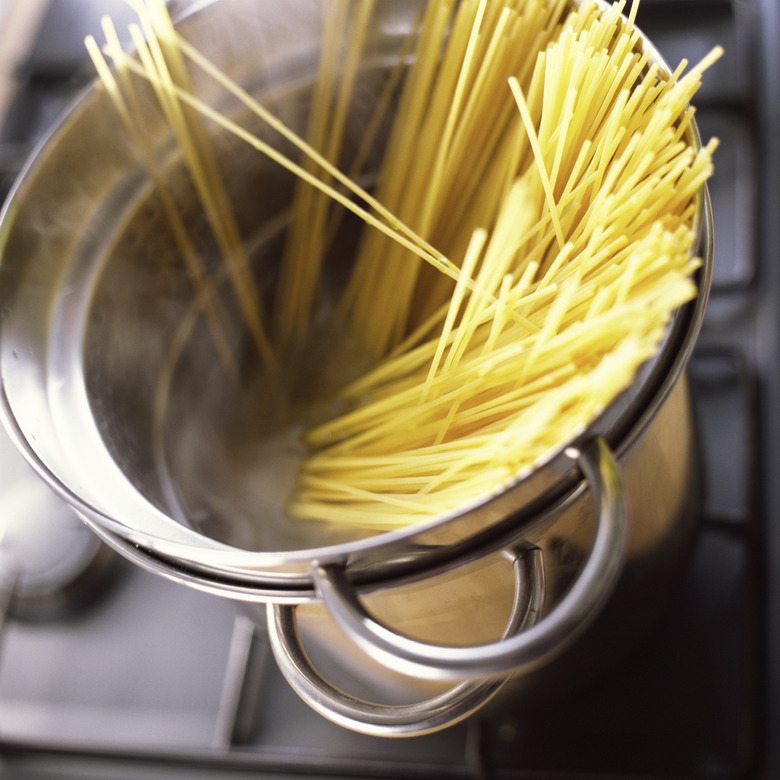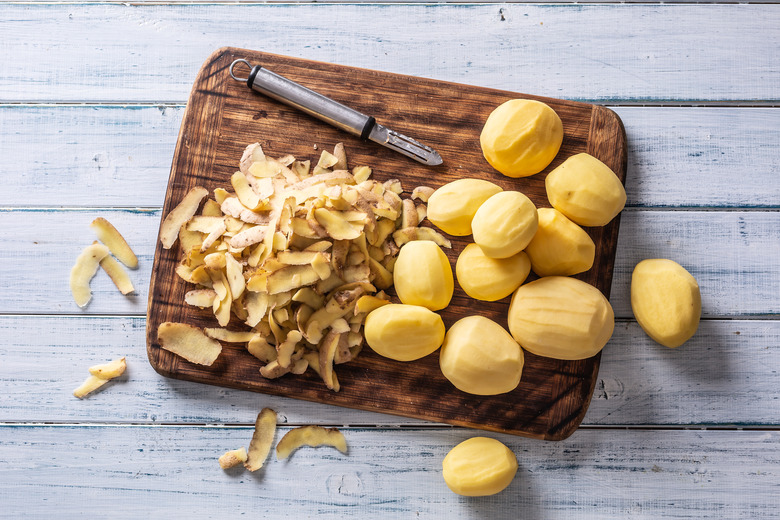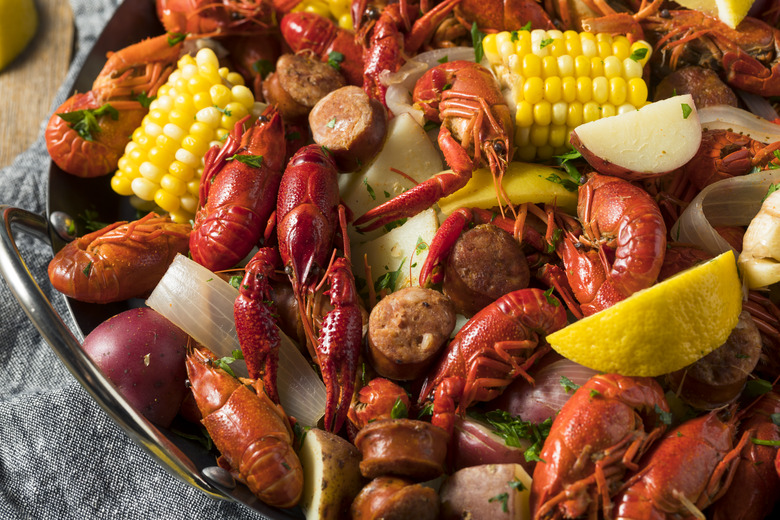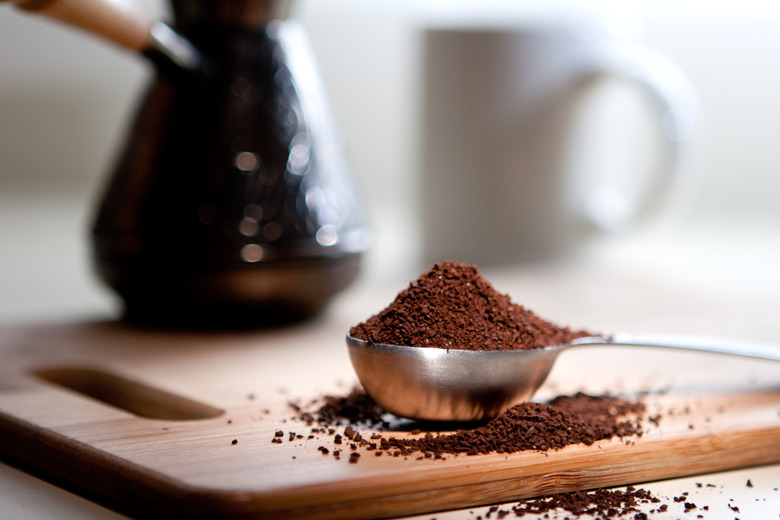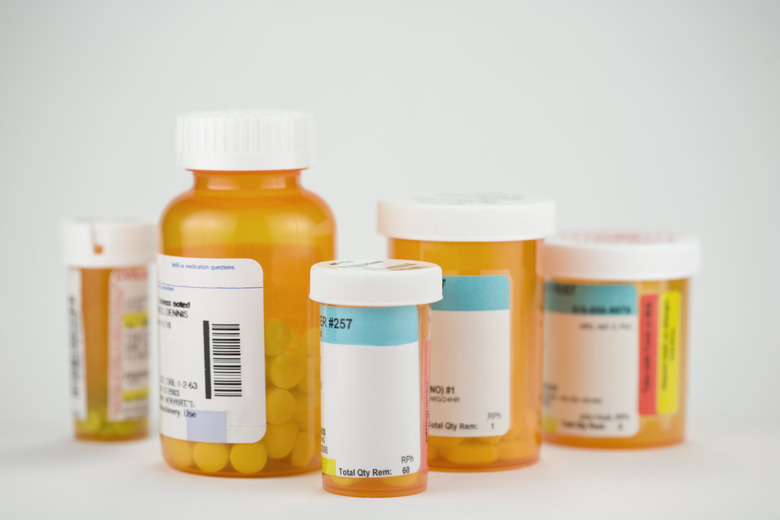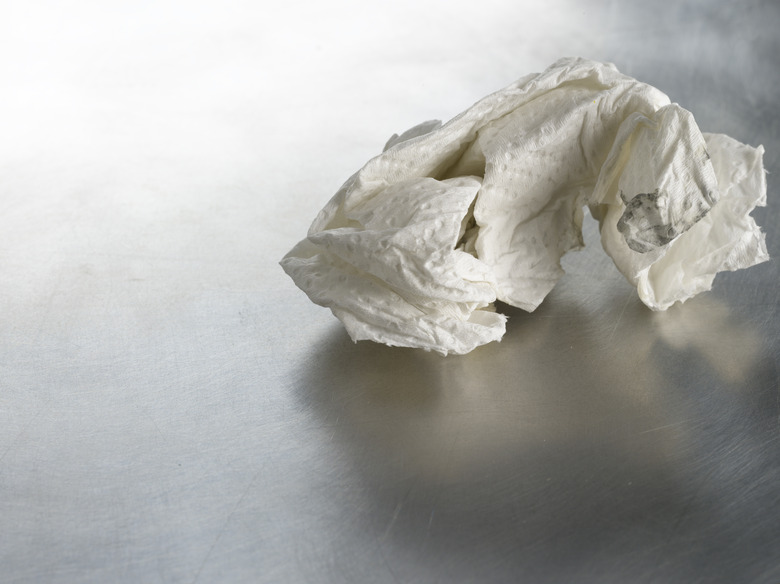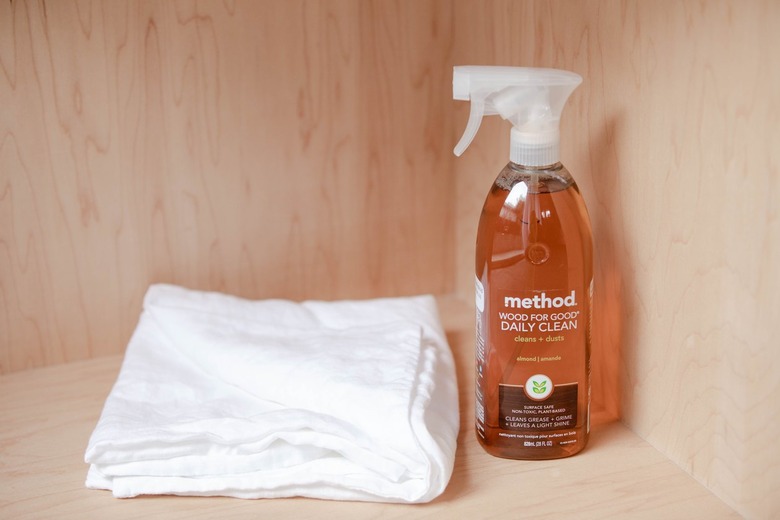8 Things You Should Never (Ever) Put In The Garbage Disposal
We may receive a commission on purchases made from links.
Although it's a pretty versatile kitchen tool, it's important to know what not to put in the garbage disposal. The convenience of taking food scraps and washing them down the drain cannot be overstated — but put the wrong thing in your disposal and it can go from handy tool to smelly kitchen sink clog in a hurry. The general rule is if you can't chew through it, your garbage disposal probably can't either.
1. Starch and Pasta
1. Starch and Pasta
It's easy to overdo it on spaghetti night and make more noodles than you need, but starchy foods, like pasta, potatoes, and rice, make the top of the list of what not to put in the garbage disposal. One reason is that some starchy foods, like oatmeal flakes, continue to absorb water and expand even after you cook them. A thick, waterlogged pile of pasta may be too much for your garbage disposal or could clog your pipes.
In addition to absorbing water and swelling, starchy foods tend to turn into a thick mush when they start to break down. This mush can become so thick that it gums up your disposal or your pipes, neither of which were built to handle thick, starchy messes.
2. Fibrous Vegetables and Peels
2. Fibrous Vegetables and Peels
You should definitely eat your veggies, but there are a few that you shouldn't feed your garbage disposal. Pumpkins, corn husks, celery, rhubarb, edamame, and other stringy fibrous vegetables are a no-no in the garbage disposal. Stringy veggies can become wrapped around the parts inside your disposal and cause a bind, but far more often, they slip through the disposal's teeth and cause a clog in your plumbing.
The same is true of potato peels and other vegetable peels. Fruit peels are problematic, as is onion skin. Peels are generally just too thin and slip right through the disposal. They may not glide as easily through your pipes, however. Even if the peels themselves don't cause a clog, they may trap other food particles along the pipe and create a clog from that.
3. Super Hard Foods
3. Super Hard Foods
Garbage disposals are pretty tough, but there are some substances that are even tougher. Bones and seafood shells are on that list and so are fruit and avocado pits. Most garbage disposals simply aren't strong enough to grind through these items. They can get stuck in the disposal, or worse, break it. Don't ruin an excellent lobster dinner by ending the meal with a call to your plumber. Just throw your seafood shells in the trash.
4. Coffee Grounds
4. Coffee Grounds
Some people will tell you that tossing coffee grounds into your garbage disposal is a great way to deodorize it. Do not listen to these people. It's easy to see why putting coffee grounds in your disposal is a bad idea — just hold them in your hand for a minute. You'll quickly feel the heavy, thick clump they become.
For your garbage disposal, churning through these coffee grounds is like churning through liquid cement. Grounds are heavy and hard to get through and, as always, could clog your drain pipe after taxing your garbage disposal.
5. Nuts
5. Nuts
As tasty as it is, there is nothing elaborate about peanut butter. It's just ground-up nuts. This means that if you run peanuts through your garbage disposal, you're essentially using it to make peanut butter, which means a gooey mess inside your disposal. Trying to clean peanut butter and other nut butters out of your garbage disposal is not a fun job.
6. Medication
6. Medication
Disposing of prescription medication can be quite challenging. Some pharmacies, law enforcement agencies, and doctor offices will take unwanted medications off your hands for you, but in some places, you may find yourself left to your own devices. If so, leave your medications out of the garbage disposal.
It may seem logical to grind up the medicine to make it unusable, but putting medications through your garbage disposal creates the same issue that flushing them does. Eventually, the drugs end up in the water supply.
7. Trash
7. Trash
The term "garbage disposal" is actually a bit of a misnomer. These disposals are intended to handle food and organic materials only. They are not a substitute for your kitchen trash can. Paper towels, food wrappers, plastic grocery bags, broken glass, and other household trash should never go into your garbage disposal. Putting these and other items in the disposal can lead to a costly repair bill.
8. Household Cleaners and Chemicals
8. Household Cleaners and Chemicals
Soap and other mild cleansers can go through your garbage disposal and into your plumbing, but avoid putting harsh cleaners in your drain. This includes store-bought drain clog removers, which contain some ingredients that are pretty brutal. Some of these chemicals can literally destroy PVC pipes and may cause holes and other damage to piping.
If it has the potential to damage your pipes, a chemical may also possess the ability to corrode your garbage disposal as well. If you have a clog, turn to a plunger or a drain snake rather than running clog-removing chemicals through your disposal and pipes.
Busting Disposal Myths
Busting Disposal Myths
Now that you know what not to put in the garbage disposal, it's a good idea to also debunk a few common disposal myths.
Myth #1: You Can Sharpen Your Blades with Eggshells or Ice Cubes
You might have been told that you can sharpen the blade inside your garbage disposal by tossing in some eggshells or ice cubes. The truth is that garbage disposals don't have blades. They use a set of metal teeth on a metal or plastic plate to grind food, and you can't sharpen them. In fact, running ice cubes through the disposal can actually dull them and reduce the appliance's effectiveness over time.
Myth #2: You Can Use Hot Water While Running a Disposal
Many people think you can run hot water through a disposal when using it, but this is not the case. Hot water helps keep grease and fats liquid, allowing them to run through the disposal unscathed and then clog your pipes further down the line. It's always best to use cold water and avoid running greasy foods through the disposal when possible.
Myth #3: Lemons Will Eliminate Odors in Garbage Disposals
Another pervasive myth is that running a lemon through your garbage disposal once in a while will cure unpleasant odors. The truth is that the lemon won't cure the odors. It may mask them for a time, but it won't solve an overall odor problem. Further, the acid in lemon juice can eat away at the teeth in your garbage disposal. To solve odor problems, make sure you don't have a stinky clog and always keep the water running for an extra minute after using your disposal to flush away any debris.
